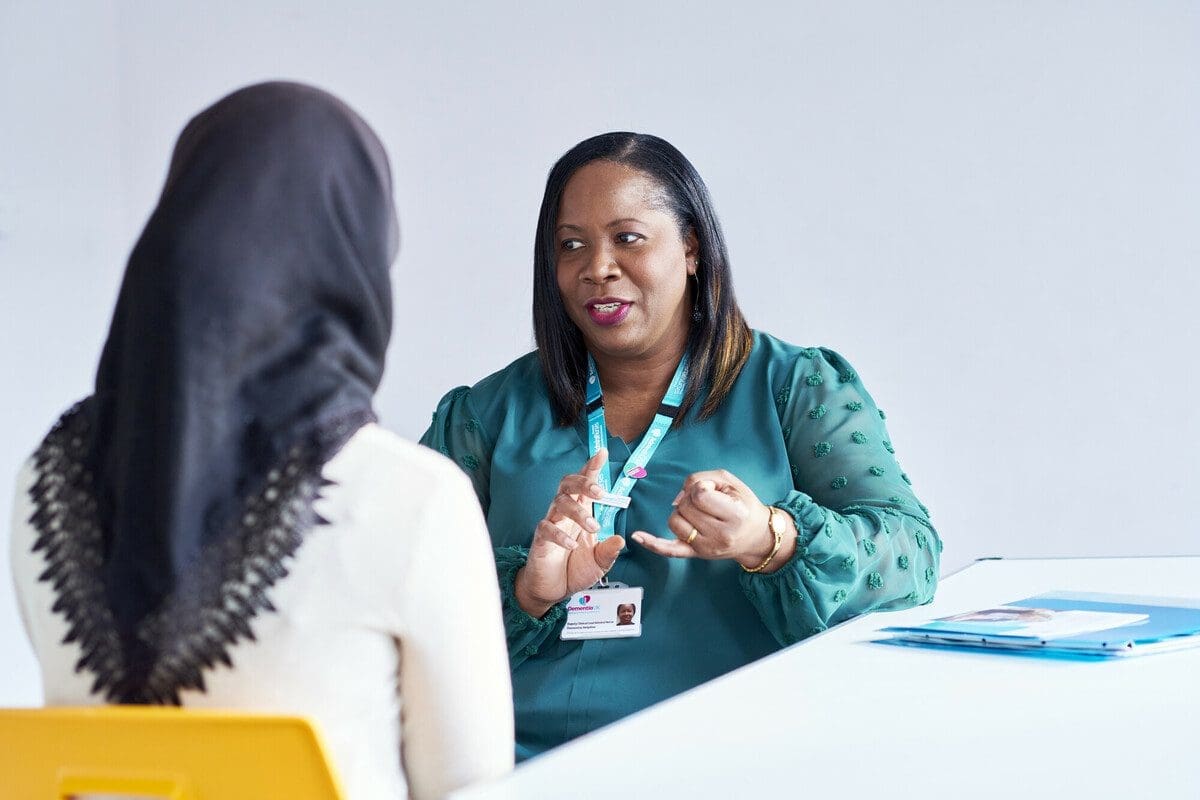
Take part in an event
Whether you run 10km, cycle for miles or trek up a mountain, you can take on a challenge and fundraise for families facing dementia.
Our Challenge Events Ambassador, Adelle Tracey, shares her tips for preparing for a challenge event or building your fitness levels.

Adelle Tracey with a photograph of her grandmother.
If you’re taking on a challenge event like a run, cycle ride or trek – or simply want to get fit – a good training programme is essential.
Adelle Tracey is a track and field middle distance athlete, who has represented Great Britain in many events, including the European and World Indoor Athletics Championships and the Commonwealth Games. In 2016, she was the British 800m indoor champion.
Adelle is Dementia UK’s first Challenge Events Ambassador, inspiring and motivating our team of new and existing challenge events fundraisers. She is supporting Dementia UK in memory of her grandmother, who lived with dementia.
“Even in difficult times, my grandma brought a smile to people’s faces,” Adelle says. “She was extremely well-loved and played a pivotal role in the lives of me, my sister and brother. Seeing how dementia affected her made me want to raise awareness of the condition, which is why I became Challenge Events Ambassador for Dementia UK.”
We asked Adelle to share her tips for preparing for a challenge event or building your fitness levels.
There are so many great ways to take part in activity to raise funds. I recommend choosing an activity you are familiar and comfortable with to complete as a challenge – it could be a walk, swim, run, climb or bike ride.
A realistic goal is important for getting the most out of the experience. Sometimes, taking part with friends can be a great way to help you keep motivated and stay on track towards your goals.
It’s important to give yourself time to build up gradually to the distance, event or discipline you are taking on. For example, if you are targeting a marathon I would recommend preparing some months beforehand, even if you run regularly – you could take part in a 10k and half marathon as smaller targets to get you prepared for the main event
Constancy is key to a good training regime – little and often can be the best way to build towards your goals and stay injury-free. Recovery is as important as the effort, too, and make sure you are well hydrated and fuelled for exercise: these steps are important for getting the most out of yourself.
Having the right footwear and equipment can reduce the risk of injury, and it will help improve your performance and comfort while exercising. It can also be quite motivating to get out the door if you are excited to use or wear your new gear.
If your motivation is flagging, remember the reasons you started training – whether that’s for general fitness or to raise vital funds for Dementia UK so its specialist Admiral Nurses can support more families living with dementia.
You could find a training partner or friend to train or complete your challenge with and involve them in your preparations – I often have someone accompanying me on their bike when I’m doing long runs.
Music can also be really motivating when you’re training or exercising.
If you’re taking part in a challenge event, on the day of your challenge, remember how hard you have worked to reach your goal and enjoy the experience. I find I perform best when I put less emphasis on the outcome and can savour the moment.
Having friends and family to meet at the end of the challenge or in training can also be really helpful – I always enjoy my running most when there is a good atmosphere.

Whether you run 10km, cycle for miles or trek up a mountain, you can take on a challenge and fundraise for families facing dementia.
Find out more about Dementia UK's celebrity supporters and ambassadors as well as our first Challenge Events Ambassador

Whether you have a question that needs an immediate answer or need emotional support when life feels overwhelming, these are the ways our dementia specialist Admiral Nurses can support you.